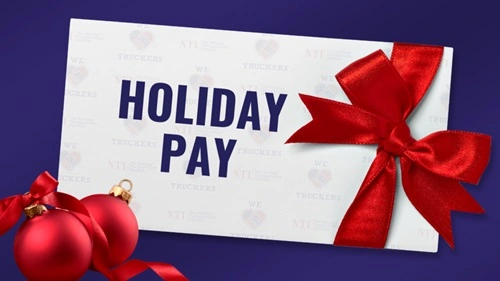No, it is not illegal for an employer not to provide holiday pay in the United States, as there is no federal law mandating it. While holiday pay is a common benefit offered by many employers, it is not a legal requirement under the Fair Labor Standards Act (FLSA) or other federal labor laws. Whether or not an employee is entitled to holiday pay depends on the employer’s policies, any applicable collective bargaining agreements, or state laws.
Understanding Holiday Pay
Holiday pay refers to additional compensation employees may receive for working on designated holidays or time off with pay for holidays observed by the employer. Examples of such holidays include Thanksgiving, Christmas, New Year’s Day, and Independence Day.
1. Federal Law and Holiday Pay
Under the Fair Labor Standards Act (FLSA):
- Employers are not required to provide paid holidays, either as time off or extra pay for working on holidays.
- Employers are only required to pay employees for hours actually worked, regardless of holidays.
- Overtime rules apply only when an employee works more than 40 hours in a workweek, even if that includes holiday hours.
2. State Laws and Holiday Pay
Some states may have specific laws or guidelines related to holiday pay, but even these generally do not mandate employers to offer paid holidays. For example:
- Massachusetts and Rhode Island: Retail workers may be entitled to premium pay (time-and-a-half) for working on certain holidays.
- California: Employers must adhere to their written policies, so if they promise holiday pay, they are legally obligated to honor it.
3. Collective Bargaining Agreements (CBAs)
Unionized workers often have holiday pay provisions included in their contracts. If an employer fails to provide holiday pay as agreed in a CBA, it could lead to legal action for breach of contract.
When Employers Must Provide Holiday Pay
Though federal and state laws do not require holiday pay, certain circumstances make it obligatory:
- Company Policy: If an employer has a policy or handbook stating employees will receive holiday pay, the employer must adhere to those terms.
- Contractual Obligations: If an employment contract specifies holiday pay, the employer must comply or risk a breach of contract claim.
- State-Specific Requirements: Some states, as mentioned above, mandate premium pay for certain workers on specific holidays.
Holiday Pay for Salaried and Hourly Employees
1. Exempt (Salaried) Employees
Exempt employees, typically those paid on a salary basis, must receive their full weekly pay if they work any portion of the workweek, even if the employer closes for a holiday. This requirement is governed by FLSA rules for exempt employees.
2. Non-Exempt (Hourly) Employees
For hourly employees, employers are only required to pay for hours worked. If the employer chooses to offer holiday pay, it is typically considered a benefit, not a legal obligation.
Recent Updates and Trends
As of 2024, there is renewed discussion about mandating holiday pay at the federal level, particularly for essential workers and retail employees. Advocacy groups argue that mandatory holiday pay would compensate workers fairly for sacrificing personal time, especially during widely celebrated holidays.
States like New York and Illinois have introduced bills that would require employers to provide premium pay on certain holidays, but these laws are still under consideration.
FAQs About Holiday Pay
Q1. Is holiday pay required by law in the U.S.?
Ans: No, there is no federal law mandating holiday pay. Whether you receive holiday pay depends on your employer’s policy or state-specific laws.
Q2. Do employers have to pay extra for working on a holiday?
Ans: No, unless specified by state law or company policy, employers are not required to pay extra for holiday work.
Q3. Are salaried employees entitled to holiday pay?
Ans: Salaried employees must receive their full weekly pay even if the employer closes for a holiday, as long as they work some part of the week.
Q4. Can an employer refuse to pay holiday pay if it’s in the company policy?
Ans: No, if holiday pay is promised in the company’s policy or an employment contract, the employer must honor it.
Q5. Which states require holiday pay?
Ans: Some states, like Massachusetts and Rhode Island, require premium pay for specific workers on holidays, but these laws are limited to certain industries.

